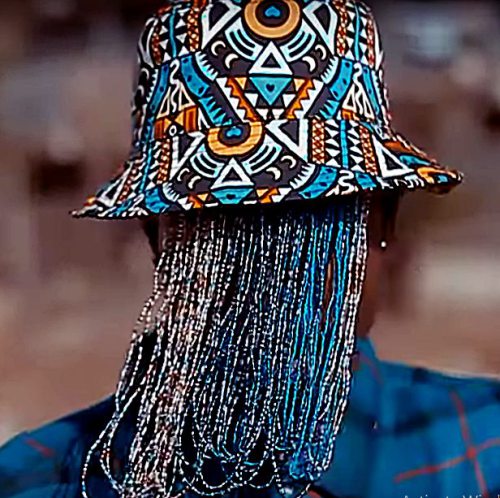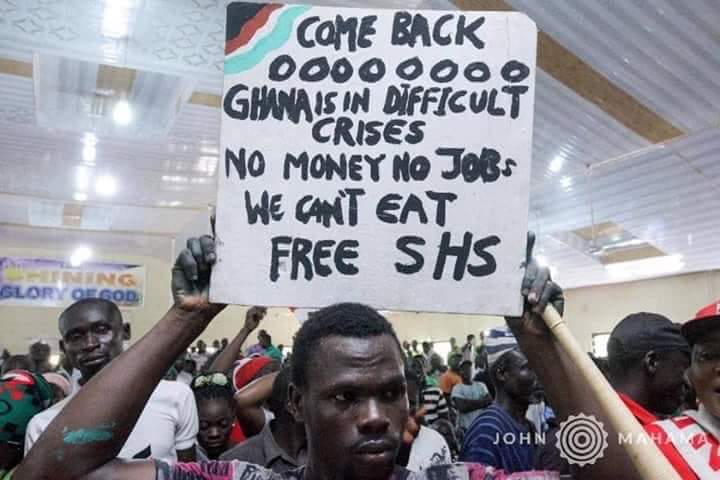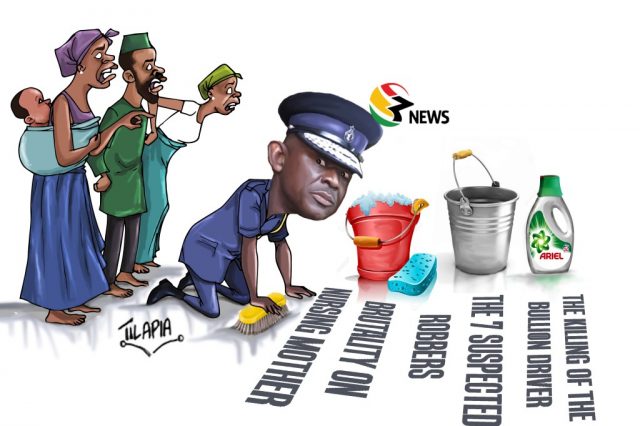Rapper Dadie Opanka dressed as Anas in the video for his song, I AM ANAS
In the last few months, the Ghanaian news media has been dominated by the investigative report on football operations in the country authored by Anas Aremeyaw Anas. At least once or twice each year in the last few years, this has been a trend. Anas goes undercover, uncovers what he discovers, and the nation expresses new shock despite some long-standing awareness of the greed and abuse of power in the country. Anas has been excellent in framing his self. He appears in public spaces with a covered face. Juxtapose his face covering with his hidden camera and you have a fascinating narrative. The man who wants us to see others must hide. The veiled one believes so much in exposing others. One may go on a rant and push the argument that the veil and the recorder are innately opposite and a summary of the owner’s double standards. However, just a minute of thought should reveal that this man’s invisibility to the public eye accounts for his successful investigations. However, it is interesting to note that, in his actual investigations, Anas rarely wears the veil. He shows his face to those he will soon make infamous. In essence, his performed invisibility ensures that his visibility is uneventful, unsuspicious, innocuous and as such, non-visible. With his masked face embroidered onto the consciousness of a country, when he stands in front of a countryman with his plain face, he is still veiled and we do not see him. How did we accept his mask as his face? We do not go to bed wondering about the face behind the mask. To us, his facelessness is his face. That is how we have come to know him. That is our complete knowledge of Anas and we do not feel incomplete if we do not see more. When a politician recently embarked on a campaign to unmask Anas, a section of the electorate responded with a counter-campaign. In our ‘it-all-eventually-boils-down-to-hashtags’ world, operation “Who watches the watchman” had a strong rival in the hashtag, #IAmAnas. This war of wits was an effective soundtrack to a clash of values. Anas’ arch nemesis sought to make the investigator’s visibility special by stripping off his invisibility. Anas’ nemesis knew that it was not about seeing his unmasked face but identifying the plain face as Anas’ which mattered’. Some of those who used the #IAmAnas hashtag on social media did it in jest; others saw this as socio-political activism. If Anas’ invisibility was a threat to some exploitative powers that be, then his veil had to be defended. The #IAmAnas hashtag often came with photos in which people had covered or exposed their faces. Each version was feasibly in support of a man, a veil, a recorder and a country. But also, each version symbolically complicated the task of unveiling the investigator. Those who matched the hashtag with photos of their covered faces surely knew that their own long established visibility on social media could present a practical contradiction – the man in veil is me, the guy you have always known. Maybe, that was not a contradiction but more of a revelation. Those who accompanied the hashtag with their uncovered faces pushed more directly, the narrative of revelation. But where so many people were laying claim to one identity, you could see the symbolic message; “any of us could be Anas, so don’t bother searching”. Inasmuch as the social media campaign was symbolically powerful, one wonders whether the project could have been exploited further and positively so. In a country with neither a Right to Information (RTI) law nor a judicial system that effectively straightens up many public office holders, it is no surprise that many citizens defend Anas and his methods. #IAmAnas. If there were an RTI law, citizens would be assured better transparency in governance. Without it, #IAmAnas was a people’s own way of supporting what gives them some occasional access to the activities especially of their black box government. But at the individual level, what it means to be Anas should grow beyond supporting the person of Anas and using the hashtag to also pursuing his publicly-stated goals and values. Our civilian clothes generally make our plain faces innocuous. What if #IAmAnas meant we all would keep an eye on the exploitative persons and systems in our society?How powerful will it be if we would not only cover our faces on social media but also commit to exposing those who steal from the public purse; ask for bribes before doing their work; and civil/public servants who just will not do their work when and how they are supposed to? If only #IAmAnas meant each of these people is really an ‘Anas’…. then those in positions of power will have a real fear as anybody they attempt to exploit could end up exposing them. In surveillance studies, there is the concept of sousveillance – the powerless watching the powerful or watching from below. Sousveillance and pervasive Internet access can combine to grant the powerless, some useful amount of power. If people in authority see many Ghanaian citizens move from the internet-based tokenism of #IAmANAS to an active state of keeping an eye on, and maintaining a disposition for exposing those who abuse power, they will sit up. The uncertainty about who one is dealing with, tends to have a way of keeping people’s excesses in check. So are you really Anas? Can you be Anas? A country at this crucial point in her life needs yes for an answer. One country needs many men and women, veiled by their vulnerability and longstanding tolerance, watching the powerful on her behalf.
Of course, this is not to say that laws and privacy rights should be disregarded. May we be appropriately vigilant.

by Oduro-Marfo
Doctoral Student, Surveillance Studies, University of Victoria, BC. @KKmarfo






Sir, I have read your piece with keen interest. It’s a very good one but I have a few questions and reservations. Now, “…invisibility according to the researcher accounts for successful investigations..” , but who is permitted to go undercover; to use the veil? Are the rules of the state suspended in the process or upheld? If they are suspended, on what grounds are such investigations given the needed legitimacy? If the Anas’ of today must have their veils defended as you intelligently pen down: ” ..It had to be defended….”; yes it has, but who is entrusted in giving legitimacy to that ‘defense’? If #IamAnaS= whistle blower, must sousveillance contradict the rules of surveillance in the state or beyond its territorial domain? The point is this, must sousveillance contradict the rules of surveillance in order to give that specious legitimacy to the likes of Anas? Is it necessary for the “whistle blower” to to adhere to the laid down rules of sousveillance? Perhaps the answer is simple, maybe not! I love this write-up. It’s very insightful without a pun; that pun. I do however do opine that your conclusion is only merited without the veil; merited in the rules of surveillance: that law. I await your response.
Thanks, Joseph for this comment. I see your point. However, the piece is not calling for people to disregard the laws. Rather, it is arguing that if Anas says he stands for probity and accountability, then we should not only support him by covering our faces on social media but being vigilant in our dealings everyday.